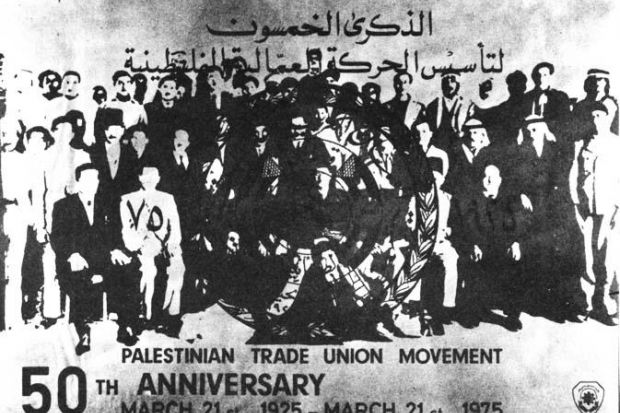A free online teaching resource now makes available vast amounts of new material relating to the Palestinian national liberation movement of the 1950s, 60s and 70s.
The culmination of a five-year research project funded by the British Academy, “Teaching Contemporary Palestinian Political History”, the web platform is hosted by the University of Oxford's department of politics and international relations. It builds on extensive collaboration between Oxford and universities in the Arab world, including scholars working at An-Najah National University in Nablus, Birzeit University in Ramallah, the Lebanese University and other institutions in Beirut.
It was also guided by institutes specialising in resistance and the anti-colonial histories of the period, including the Museum of the Cuban Revolution, the Institute for Historical Research in Havana and the South Africa Democracy and Education Trust.
The platform, available in both Arabic and English, brings together more than 80 oral history interviews with Palestinians who describe their own experiences and explain their own participation in the revolution, covering the whole period from the Palestine War of 1948 to the siege of Beirut in 1982. It also incorporates writings from the period, videos, photographs, songs, posters and excerpts from revolutionary publications.
The project was led by Karma Nabulsi, associate professor in politics and international relations, and fellow in politics at St Edmund Hall, Oxford, and co-authored, curated and edited by Abdel Razzaq Takriti, Arab-American Educational Foundation chair in modern Arab history at the University of Houston.
“There are few if any teaching materials looking at the story of the Palestinians from their viewpoint during this important anti-colonial era. We started pretty much from a blank page,” said Dr Nabulsi. Although the website cannot offer “a comprehensive historical record of the Palestinian liberation movement”, it is nonetheless able to “introduce some of the key themes from the missing vantage point of the Palestinian people themselves, and the international context.
“This project gathered hundreds of hours of interviews, so that voices traditionally unheard in academic studies of decolonisation can be listened to. It is the first time many of them have spoken about their memories of this period.”
In exploring the political and social realities of the Palestinian lives at the time, the new resource sheds fresh light on revolutionary culture, the formation of a national representative institution (the Palestine Liberation Organisation), the roles played by trade unions, women’s associations and grass-roots movements. It also charts the development of international solidarity with the Palestinians, including the support of institutions such as the United Nations.




